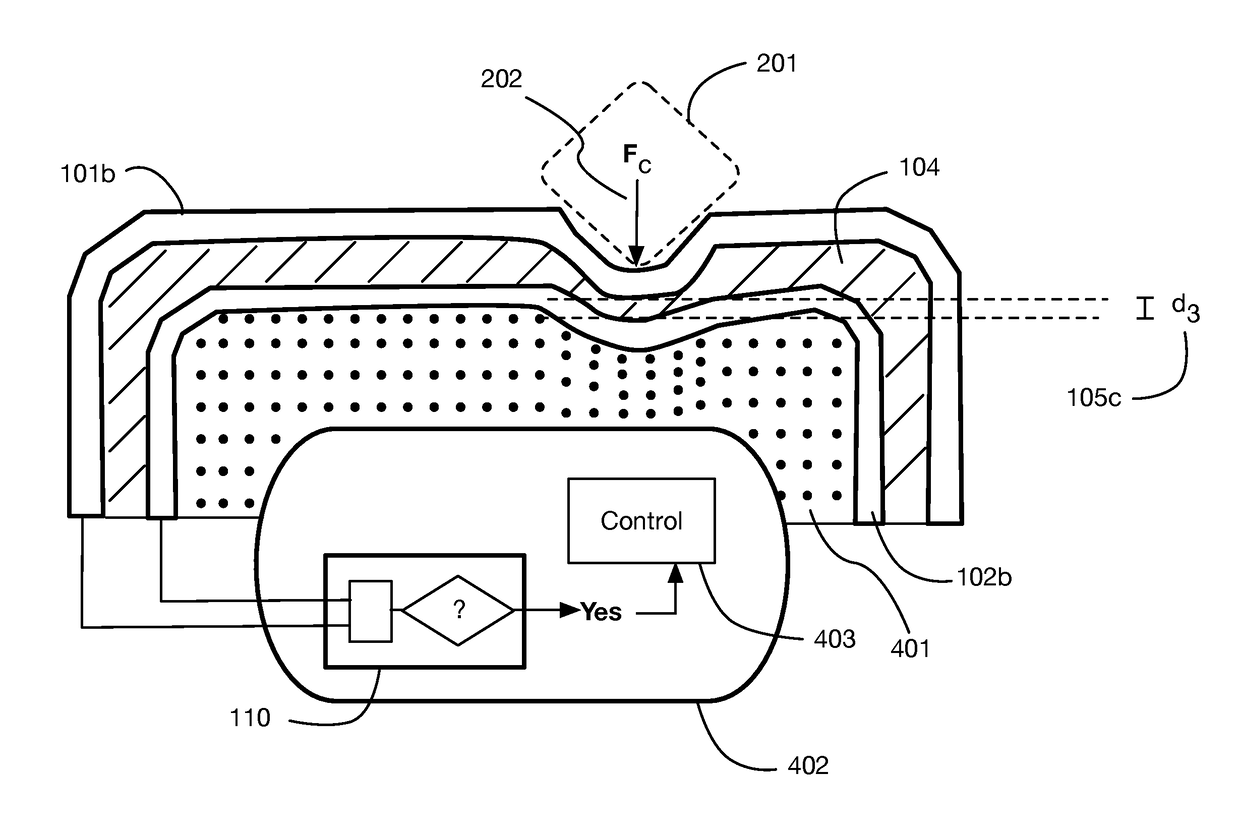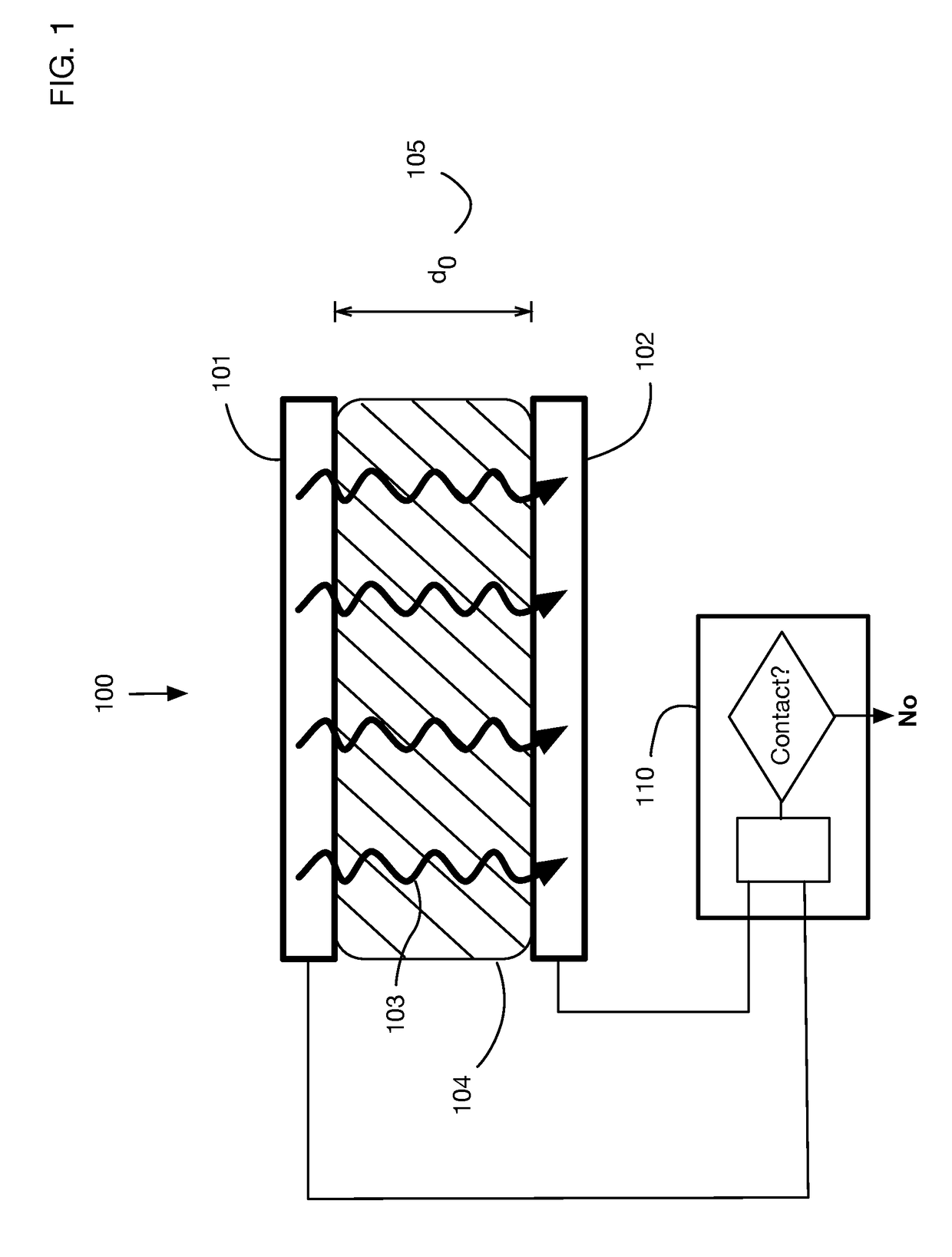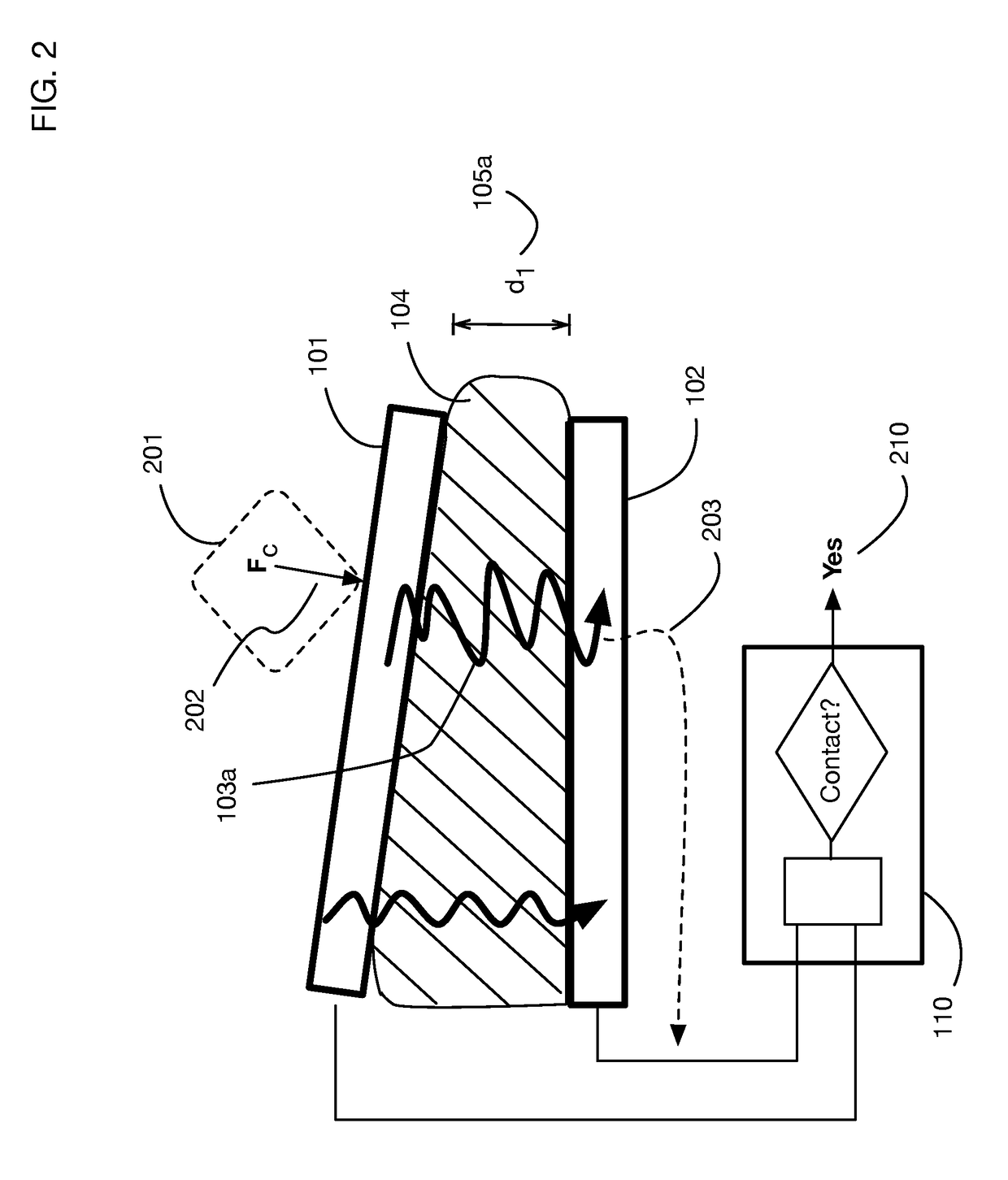Compliant touch sensor
a touch sensor and compliant technology, applied in the direction of force measurement by measuring optical property variation, programme control, force/torque/work measurement apparatus, etc., can solve the problems of difficult to sense small areas, relatively stiff bumpers, and collisions between moving objects, so as to reduce noise, mitigate noise, and block noise
- Summary
- Abstract
- Description
- Claims
- Application Information
AI Technical Summary
Benefits of technology
Problems solved by technology
Method used
Image
Examples
Embodiment Construction
[0044]A compliant touch sensor will now be described. In the following exemplary description numerous specific details are set forth in order to provide a more thorough understanding of embodiments of the invention. It will be apparent, however, to an artisan of ordinary skill that the present invention may be practiced without incorporating all aspects of the specific details described herein. In other instances, specific features, quantities, or measurements well known to those of ordinary skill in the art have not been described in detail so as not to obscure the invention. Readers should note that although examples of the invention are set forth herein, the claims, and the full scope of any equivalents, are what define the metes and bounds of the invention.
[0045]FIG. 1 illustrates an embodiment of the invention that detects contact between the sensor and an object wherein the sensor includes a compliant sensor that compresses readily with minimal force, using a transmitter and a...
PUM
| Property | Measurement | Unit |
|---|---|---|
| separation distance | aaaaa | aaaaa |
| electromagnetic field | aaaaa | aaaaa |
| field strength | aaaaa | aaaaa |
Abstract
Description
Claims
Application Information
 Login to View More
Login to View More - R&D
- Intellectual Property
- Life Sciences
- Materials
- Tech Scout
- Unparalleled Data Quality
- Higher Quality Content
- 60% Fewer Hallucinations
Browse by: Latest US Patents, China's latest patents, Technical Efficacy Thesaurus, Application Domain, Technology Topic, Popular Technical Reports.
© 2025 PatSnap. All rights reserved.Legal|Privacy policy|Modern Slavery Act Transparency Statement|Sitemap|About US| Contact US: help@patsnap.com



